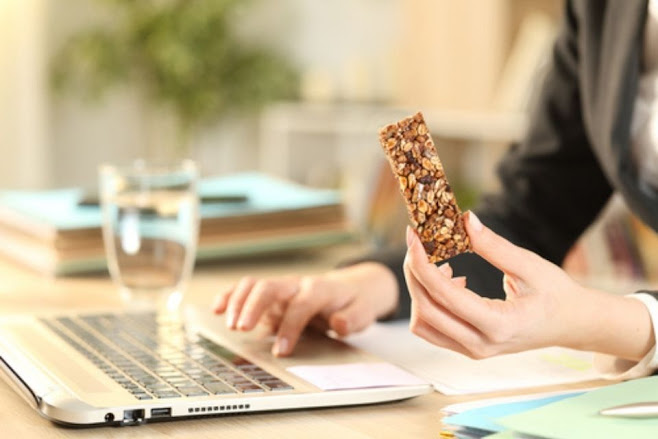Only 25–35% of Service Members report getting the recommended 7–8 hours of sleep per night. With your military and family commitments, devoting the time you need for restful sleep can be tough. Small steps—such as thinking about what you eat or drink before bed—can help getting a good night’s sleep be more than just a dream.
 How foods and drinks can interfere with sleep
How foods and drinks can interfere with sleep
- Feeling too full or too hungry: One extreme or the other might interfere with sleep by waking you up. A too-full stomach might cause pain, nausea, or bloating.
Tip: Eat a small, light snack, such as cereal and milk or whole-wheat crackers with cheese, if you’re feeling hungry before bed. Avoid heavy meals, spicy, or fried foods 3 hours before bed.
- Alcohol: Initially, you might fall asleep faster, but then alcohol keeps your body from getting into the deep sleep cycles that provide restorative sleep. Even 1–2 servings of alcohol can hurt your sleep.
1 alcohol serving =
- 12 oz beer
- 5 oz wine
- 1.5-oz shot of spirits (rum, vodka, gin, whiskey, tequila
Tip: Limit alcohol, especially before bed, to maximize deep sleep.
- Caffeine: That morning coffee does exactly what you want it to do: It boosts your energy and alertness. But caffeine and other stimulants can disrupt sleep when taken too close to bedtime.
Tip: Stop drinking caffeine at least 6 hours before bed.

Can certain foods really help you sleep?
 Some foods have naturally occurring ingredients, such as tryptophan and melatonin, believed to aid sleep. Although there’s not enough evidence to show a direct link between particular foods and melatonin and tryptophan levels that can impact sleep, some studies suggest certain foods can contribute to better sleep. There’s little harm in eating them if you enjoy them.
Some foods have naturally occurring ingredients, such as tryptophan and melatonin, believed to aid sleep. Although there’s not enough evidence to show a direct link between particular foods and melatonin and tryptophan levels that can impact sleep, some studies suggest certain foods can contribute to better sleep. There’s little harm in eating them if you enjoy them.
- Melatonin is a hormone that regulates your sleep-wake cycle. Melatonin production increases when it gets dark, signaling your body it’s time to sleep. Nuts, eggs, fish, cherries, milk, and mushrooms naturally contain melatonin.
- Tryptophan is an amino acid (a building block of protein) needed to produce serotonin, a brain chemical important for sleep and mood. Turkey, chicken, beef, cheese, yogurt, and fish naturally contain tryptophan. Carbohydrates also help boost tryptophan in the brain.
- B vitamins are also needed for your body to produce serotonin.
For restful sleep, be mindful of how much and what time you have caffeine, alcohol, and your last meal of the day.
Learn more at our “Get into Fighting Weight” guide.
